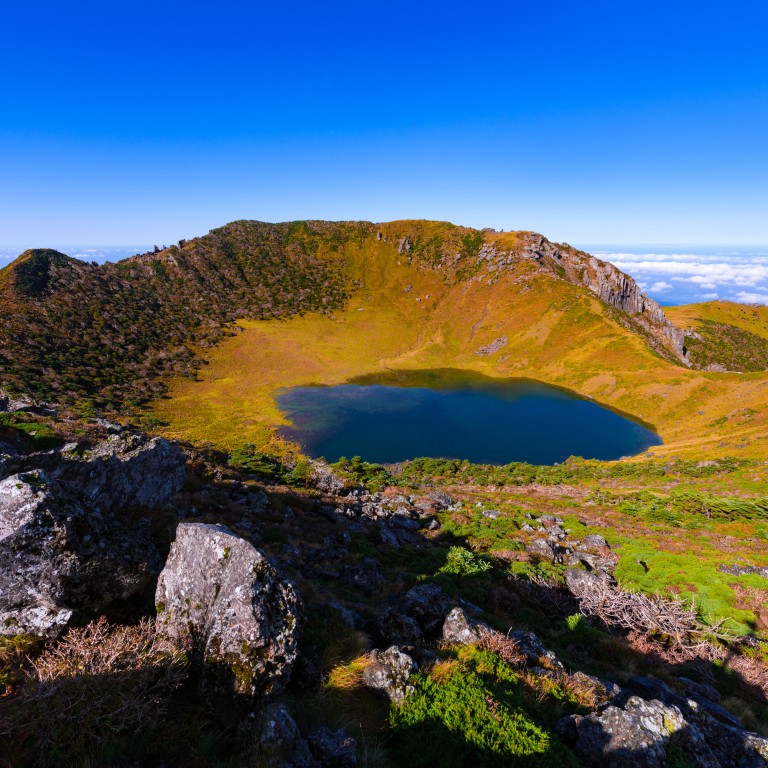
Ecology of South Korea’s Mount Halla faces threat from ramen-slurping hikers
- The Jeju Island’s scenic spot has seen a surge in visitors dumping ramen broth on the ground that can flow into valley streams, endangering plants and aquatic species
- Up to 120 litres of soup is accumulated a day especially during the peak spring season when flowers bloom
As the trend of taking photos of eating instant cup ramen after hiking Jeju Island’s Mount Halla gains popularity in South Korea, concerns regarding environmental issues, including ecosystem disruption, are on the rise.
Currently, in certain parts of the mountain, such as Witse Oreum, it is allowed to prepare and eat food, including instant cup ramen, by using hot water from vacuum flasks.
According to the mountain’s management office, the consumption of instant cup ramen surges, resulting in the accumulation of 100 litres to 120 litres of ramen broth per day especially during the peak spring season when flowers bloom.
In response, the National Park Office of Mount Halla has installed two food dispensers at Witse Oreum, along with five 60-litre containers for leftover ramen broth within the park.
However, visitors continue to improperly dispose of ramen broth in restrooms or on the ground, as the existing facilities remain insufficient. Such actions constitute a violation of the Natural Parks Act, with penalties of up to 200,000 won (US$148.42).
Kyoto to ban visitors from geisha district area over ‘out-of-control’ incidents
Improperly discarded ramen broth poses a significant threat to the ecosystem. If the briny soup is poured onto the ground, it can flow into valley streams, contaminating water sources critical for aquatic life such as caddis flies, dragonfly larvae and salamanders unique to Jeju Island.
Moreover, the seepage of ramen broth into the soil can endanger specialised plant species exclusive to Mount Halla, potentially leading to their extinction.
The scent of discarded food like ramen may attract animals like crows, badgers and weasels to areas such as Witse Oreum. It will cause disruptions within the ecosystem as these animals consume contaminated food.
To address these concerns, the park management office has launched a campaign urging visitors not to leave behind any ramen broth. Banners showing messages have been placed throughout national parks, and the campaign is being promoted via social media.

